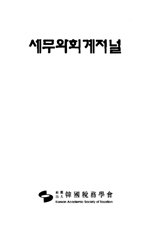- 영문명
- Changes in the Mitigating Effect of Corporate Governance on Information Asymmetry During the Pandemic:Focusing on Foreign Investors and Big4 Auditors
- 발행기관
- 한국세무학회
- 저자명
- 신유진(Yoojin Shin) 최보람(Boram Choi)
- 간행물 정보
- 『세무와회계저널』제26권 제4호, 27~51쪽, 전체 25쪽
- 주제분류
- 경제경영 > 회계학
- 파일형태
- 발행일자
- 2025.08.31
5,800원
구매일시로부터 72시간 이내에 다운로드 가능합니다.
이 학술논문 정보는 (주)교보문고와 각 발행기관 사이에 저작물 이용 계약이 체결된 것으로, 교보문고를 통해 제공되고 있습니다.

국문 초록
본 연구는 COVID-19 팬데믹(이하 “COVID”)이 기업의 정보비대칭에 미치는 영향에 대하여 분석한다. 특히, 기업지배구조 중 효과적인 외부감시역할을 수행하는 인적자원인 외국인투자자 및 대형감사인이 정보비대칭을 완화하는 효과가 COVID 기간 동안 달라지는지를 중심으로 연구하고자 한다. COVID로 인해 사회적으로 이동이 제한되고 비대면 근무가 일상화되었으며, 전 세계적으로 자본시장에 큰 혼란이 초래되었기에 이 기간 동안 자본시장의 정보비대칭이 증가하였음을 예상할 수 있다.
COVID 이전의 선행연구에서는 일반적으로 외국인지분율이 높은 경우와 대형감사인에게 감사를 받는 경우에는 이들이 효과적으로 외부감시를 수행하여 경영자를 견제하는 효과를 내는 긍정적인 기업지배구조 중 하나로 평가되어 왔다. 다수의 선행연구에 의하면 외국인투자자 및 대형감사인은 정보비대칭을 낮추는 역할을 한다. 그러나 COVID 기간 동안 인적자원을 활용하거나 대면 중심인 기업의 타격이 상당히 컸으므로, 지배구조 중 인적자원에 해당하는 특성들도 이전과는 다르게 작용할 가능성이 있다. 이에 기인하여 본 연구는 팬데믹 시기에도 팬데믹 이전과 일치하게 외국인투자자 및 대형감사인이 정보비대칭을 낮추는 역할을 하였는지를 확인하고자 하였다.
본 연구의 주요 결과는 다음과 같다. 전체 기간에 대한 분석결과 외국인지분율이 높은 경우와 대형감사인에게 감사받는 경우일수록 정보비대칭이 낮았다. 그러나, COVID 기간 동안 외국인지분율이 높은 경우와 대형감사인에게 감사받은 경우에는 정보비대칭을 완화하는 효과가 감소하였다. 즉, COVID 기간에는 외국인지분율이 높거나 대형감사인에게 감사받았더라도 정보비대칭이 낮아지는 효과가 나타나지 않았으며, 오히려 유의한 양(+)의 계수값이 나타났으므로 정보비대칭의 증가를 완화하지 못하였음을 의미한다.
본 연구의 결과를 종합하면 COVID 이전에 일반적으로 정보비대칭을 완화하는 역할을 하는 인적자원인 기업지배구조가 COVID 기간에는 그 기대효과를 나타내지 못하였다. 이는 COVID가 상당히 특수한 상황이었으며, 이러한 혼란의 시기 동안 이전에 비하여 기업지배구조가 원활하게 작동하지 못하였음을 의미한다. 따라서 특수한 상황에서도 자본시장의 불확실성을 해소하며, 혼란을 최소화 할 수 있는 장치가 마련되어야 한다는 시사점을 제공한다.
영문 초록
This study investigates the impact of the COVID-19 pandemic (hereafter “COVID”) on information asymmetry in capital markets. In particular, it examines whether the roles of foreign investors and Big4 auditors—both key human resources in corporate governance that serve as effective external monitors—have changed in their ability to mitigate information asymmetry during the COVID period.
COVID, as an infectious disease, led to widespread infections, hospitalizations, and fatalities, while also bringing about significant social changes such as restricted mobility and the normalization of remote work. Moreover, it caused considerable disruptions to global capital markets. Accordingly, it is reasonable to anticipate that information asymmetry in capital markets increased during this period. Due to the unique nature of COVID as a pandemic-induced capital market crisis, its impact likely varied significantly depending on firm and industry characteristics. Additionally, it was a period in which corporate governance mechanisms may have faced constraints in functioning effectively, as supported by the findings of Shin and Choi (2025).
Prior studies conducted before COVID generally conclude that a high proportion of foreign ownership and the engagement of big4 auditors serve as positive elements of corporate governance, effectively restraining managerial opportunism through external monitoring. Numerous previous studies have found that both foreign investors and big4 auditors contribute to reducing information asymmetry. However, given the substantial disruption to human capital-intensive and face-to-face operations during the COVID period, it is plausible that the efficacy of such governance mechanisms may have changed. Therefore, this study aims to determine whether foreign investors and big4 auditors continued to play a mitigating role in information asymmetry during the pandemic as they did prior to it.
The empirical findings of this study are as follows. During the full sample period, firms with higher foreign ownership or those audited by big4 auditors exhibited lower levels of information asymmetry, consistent with prior research. However, the mitigating effects of foreign ownership and big4 audits on information asymmetry diminished during the COVID period. Specifically, during COVID, neither high foreign ownership nor big4 audits were associated with reductions in information asymmetry;rather, the analysis revealed significantly positive coefficients, indicating that these mechanisms failed to alleviate the rise in information asymmetry.
Taken together, the results suggest that governance mechanisms involving human capital, which typically function to reduce information asymmetry, did not operate effectively during the COVID period. This underscores the extraordinary nature of the pandemic and suggests that corporate governance systems were less effective under such chaotic conditions. The findings imply a need for institutional arrangements that can reduce market uncertainty and minimize disruption even in times of crisis.
목차
Ⅰ. 서 론
Ⅱ. 선행연구 및 연구가설
Ⅲ. 연구방법론
Ⅳ. 실증분석결과
Ⅴ. 결론 및 시사점
참고문헌
참고문헌
- 회계학연구
- 대한경영학회지
- 성균관대학교 석사학위논문
- 회계학연구
- 회계학연구
- 재무와 회계정보저널
- KDI Policy Study
- 국제회계연구
- 국제회계연구
- 회계학연구
- 회계학연구
- The Review of Corporate Finance Studies
- Sustainability
- Business Horizons
- Corporate Governance:An International Review
- Accounting & Finance
- Journal of Multinational Financial Management
- Managerial Auditing Journal
- Journal of Applied Accounting and Taxation
- World Economy Brief
- Frontiers in Psychology
- Journal of Accounting and Economics
- Accounting Perspectives
- Review of Finance
- Journal of Accounting Research
- International Journal of Social Economics
- Asian Journal of Accounting Research
- Journal of Accounting Literature
- Sustainability
관련논문
경제경영 > 회계학분야 BEST
더보기경제경영 > 회계학분야 NEW
- 자본준비금 감액배당의 과세 문제에 관한 소고
- 팬데믹 시기의 정보비대칭에 대한 기업지배구조의완화효과의 변화:외국인투자자와 대형감사인을 중심으로
- ESG 수준과 이익조정 간의 관련성 : 경영자 보상의 조절효과
최근 이용한 논문
교보eBook 첫 방문을 환영 합니다!

신규가입 혜택 지급이 완료 되었습니다.
바로 사용 가능한 교보e캐시 1,000원 (유효기간 7일)
지금 바로 교보eBook의 다양한 콘텐츠를 이용해 보세요!



